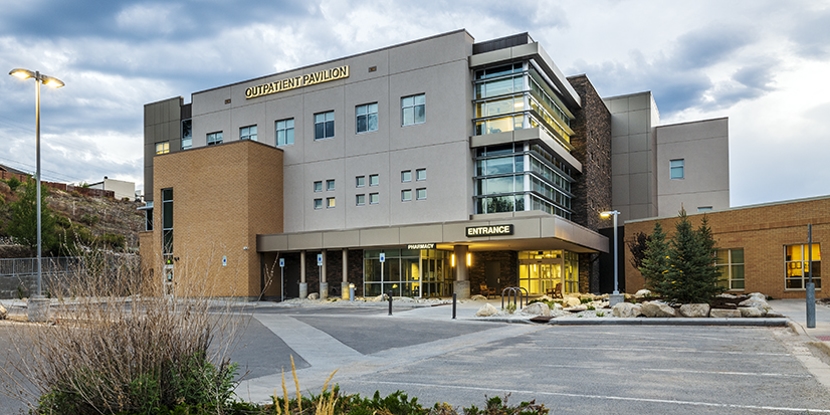Nephrology
Treatment for kidney disease

A nephrologist is a physician who specializes in the treatment and management of kidney disorders and disease.
Generally, a patient does not see a nephrologist until their primary care physician refers them to one. On an initial visit, the nephrologist will perform their own examination of the kidneys through blood and urine tests. They may also perform a biopsy if necessary.
To schedule an appointment: (719) 530-2000
Fax: (719) 530-2053
Our nephrology team
Our team of board-certified nephrologists provide comprehensive care for adults with kidney diseases.
Some examples of conditions treated:
- Fluid & Electrolyte Disorders: A dramatic loss of fluids through profuse vomiting or sweating could result in an electrolyte disorder. Treatment varies depending on the specific disorder, but generally the goal is to return the body to a normal mineral balance.
- Kidney Stones: These are the result of excess minerals in the kidneys that form crystal-like substances in the urine. Treating small kidney stones involves pain medication to make passing it easier. In more extreme cases, a doctor may try to use techniques to break the stone up or suggest surgery to remove it.
- Acute Renal Failure: Recovering from kidney failure almost always requires staying at the hospital. A doctor will need to diagnose the original cause of the kidney disease to create an appropriate treatment.
- Chronic Kidney Diseases: Unfortunately, many chronic kidney diseases are impossible to cure. Treatment is used to improve the patient’s quality of life and typically involves a series of medications.
- End-Stage Renal Disease & Dialysis: When chronic kidney disease reaches the point where the kidneys can no longer function, a patient has reached end-stage renal disease. At this stage, a patient will require dialysis and possibly a kidney transplant.



